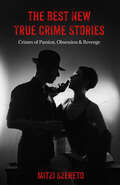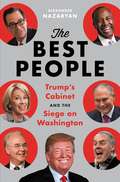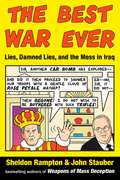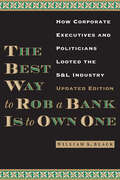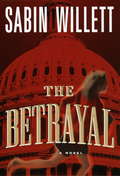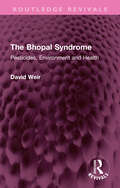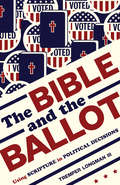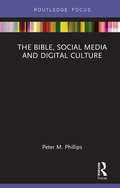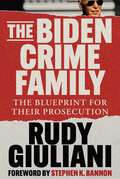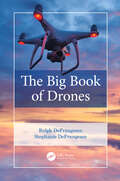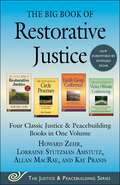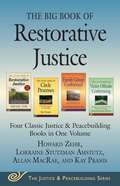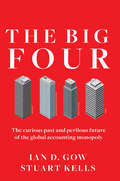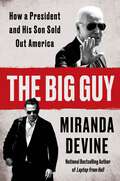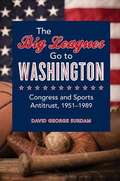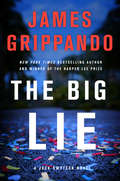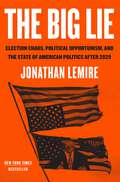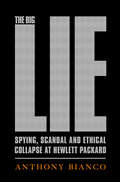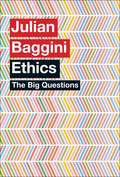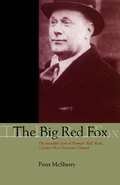- Table View
- List View
The Best Lawyer In A One-Lawyer Town
by Dale BumpersAutobiography of the former Arkansas governor and legislator.
The Best New True Crime Stories: Serial Killers (The\best New True Crime Stories Ser.)
by Mitzi SzeretoObsession, Unrequited Love, Jealousy, Revenge, and Violence Collide in this Page-Turning Anthology#1 New Release in Forensic Science Law and Hoaxes & DeceptionsCrimes of passion are both eerie and strangely tantalizing. How can someone you hold dear become someone you fear? This riveting anthology explores the question through some of the most compelling true crime accounts and stories of obsession and vengeance.Crimes fueled by emotions. Love, passion, obsession, jealousy, and betrayal. When it comes to the emotions, people can react in strange and unexpected ways. Whether it’s a heart hurt by unrequited love, or a lover so passionate they’ll stop at nothing to get their way—even the most mild-mannered soul can suddenly flip, becoming a vengeful spirit with dark intentions. From the ancient Greek myth of Jason and Medea to Shakespeare’s Othello, themes dealing with deeply felt emotions have persisted. But unlike mythology or fiction, The Best New True Crime Stories: Crimes of Passion, Obsession & Revenge contains stories from real life.A special selection of stories written exclusively for this book. The Best New True Crime Stories: Crimes of Passion, Obsession & Revenge includes stories from around the world and from different times. As with all titles in the popular The Best New True Crime Stories series, this volume contains original nonfiction accounts penned by writers from across the literary spectrum. Dive into these twisted true tales of passion and unrequited love turned violent. Examine why some have fully embraced their dark side, resorting to crime to achieve their own special brand of satisfaction and retribution.If you enjoyed Mitzi's last book in her series, The Best New True Crime Stories: Well-Mannered Crooks, Rogues & Criminals, and books like You Love Me, and The Big Book of Serial Killers Volume 2, then you’ll love The Best New True Crime Stories: Crimes of Passion, Obsession & Revenge.
The Best People: Trump's Cabinet and the Siege on Washington
by Alexander NazaryanAn engrossing look at the Trump cabinet: the scandals, the incompetence, the assault on the federal government, the bungled attempts to impose order on an administration lost in a chaos of its own making.Donald Trump promised a return to national greatness, but each day of his presidency seems to bring a new crisis, a deepening sense of national unease. Why, and how, has he failed his supporters? And how has he, on occasion, bested his detractors? The Best People takes complete measure of the Trump administration, to grasp with clarity the president and his intentions, and how those intentions are being carried out-or subverted-by the people he has hired. Alexander Nazaryan argues that the "assault on the administrative state" promised by Steve Bannon in early 2017 never came. What the American people got instead was Wilbur Ross hauling his tennis pro to confirmation hearing preparations; Scott Pruitt running away from rattlesnakes; Reince Priebus enduring insults from junior White House staffers. And yet, bungling as Trump's cabinet members have been, they have managed to either damage or arrest many of the gears that make government run. They have given away public lands to oil companies and allowed corporate lobbyists to make decisions about what is best for the American people, and have done it all while flying on private jets and dining at the finest restaurants, at taxpayers' expense. Meticulously reported and enthrallingly told, The Best People takes readers inside the federal government under Trump's control, a government assailed by the very people charged to lead it, a government awash in confusion and corruption.
The Best War Ever
by Sheldon Rampton John StauberThe war in Iraq may be remembered as the point at which the propaganda model perfected in the twentieth century stopped working: the world is too complex, information is too plentiful, and-as events in Iraq reveal- propaganda makes bad policy. The Best War Ever is about a war that was devised in fantasy and lost in delusion. It highlights the futility of lying to oneself and others in matters of life and death. And it offers lessons to the current generation so that, at least in our time, this never happens again. As the team of Rampton and Stauber show in their first new book since President Bush's reelection, the White House seems to have fooled no one as much as itself in the march toward a needless (from a security perspective) war in Iraq. As the authors argue, one of the most tragic consequences of the Bush administration's reliance on propaganda is its disdain for realistic planning in matters of war. Repeatedly, when faced with predictions of problems, U. S. policymakers dismissed the warnings of Iraq experts, choosing instead to promulgate its version of the war through conservative media outlets and PR campaigns. The result has been too few troops on the ground to maintain security; failure to anticipate the insurgency; and oblivious disregard, even contempt, for critics in either party who attempted to assess the human and economic costs of the war. Even now that withdrawal seems imminent, however, the administration and its allies continue their cover-ups: downplaying civilian deaths and military injuries; employing marketing buzzwords like "victory" repeatedly to shore up public opinion; and botched attempts, through third-party PR firms, at creating phony news. The Bush administration entered Iraq believing that its moral, technological, and military superiority would ensure victory abroad, and that its mastery of the politics would win support at home. Instead, it found a morass of problems that do not lend themselves to moralistic, technological, or propaganda-based solutions.
The Best Way to Rob a Bank is to Own One: How Corporate Executives and Politicians Looted the S&L Industry
by William K. BlackAn investigator tells the inside story of the 1980s savings-and-loan scandal and what we can do today to prevent future frauds: “Merits a wide readership.” —Journal of Economic IssuesIn this expert insider’s account of the savings and loan debacle of the 1980s, William Black lays bare the strategies that corrupt CEOs and CFOs—in collusion with those who have regulatory oversight of their industries—use to defraud companies for their personal gain. Recounting the investigations he conducted as Director of Litigation for the Federal Home Loan Bank Board, Black fully reveals how Charles Keating and hundreds of other S&L owners took advantage of a weak regulatory environment to perpetrate accounting fraud on a massive scale. In the new afterword, he also authoritatively links the S&L crash to the business failures of 2008 and beyond, showing how CEOs then and now are using the same tactics to defeat regulatory restraints and commit the same types of destructive fraud.Black uses the latest advances in criminology and economics to develop a theory of why “control fraud”—looting a company for personal profit—tends to occur in waves that make financial markets deeply inefficient. He also explains how to prevent such waves. Throughout the book, Black drives home the larger point that control fraud is a major, ongoing threat in business that requires active, independent regulators to contain it. His book is a wake-up call for everyone who believes that market forces alone will keep companies and their owners honest.“Bill Black has detailed an alarming story about financial and political corruption.” —Paul Volcker“Persons interested in the economics of fraud, the S&L debacle, the problems of financial regulation, and microeconomics more broadly will find this book to be very important.” ?Journal of Economic Issues
The Best Way to Rob a Bank is to Own One: How Corporate Executives and Politicians Looted the S&L Industry
by William K. BlackAn investigator tells the inside story of the 1980s savings-and-loan scandal and what we can do today to prevent future frauds: “Merits a wide readership.” —Journal of Economic IssuesIn this expert insider’s account of the savings and loan debacle of the 1980s, William Black lays bare the strategies that corrupt CEOs and CFOs—in collusion with those who have regulatory oversight of their industries—use to defraud companies for their personal gain. Recounting the investigations he conducted as Director of Litigation for the Federal Home Loan Bank Board, Black fully reveals how Charles Keating and hundreds of other S&L owners took advantage of a weak regulatory environment to perpetrate accounting fraud on a massive scale. In the new afterword, he also authoritatively links the S&L crash to the business failures of 2008 and beyond, showing how CEOs then and now are using the same tactics to defeat regulatory restraints and commit the same types of destructive fraud.Black uses the latest advances in criminology and economics to develop a theory of why “control fraud”—looting a company for personal profit—tends to occur in waves that make financial markets deeply inefficient. He also explains how to prevent such waves. Throughout the book, Black drives home the larger point that control fraud is a major, ongoing threat in business that requires active, independent regulators to contain it. His book is a wake-up call for everyone who believes that market forces alone will keep companies and their owners honest.“Bill Black has detailed an alarming story about financial and political corruption.” —Paul Volcker“Persons interested in the economics of fraud, the S&L debacle, the problems of financial regulation, and microeconomics more broadly will find this book to be very important.” ?Journal of Economic Issues
The Betrayal: A Novel
by Sabin WillettSabin Willett made a powerful debut with his legal thriller, The Deal. Now he's made the leap from the courthouse to the White House in an even more accomplished international thriller involving political corruption, multibillion-dollar deal making, kidnapping, and assassination. At the center of this fast-paced novel is a fascinating heroine: Louisa Shidler, a thirty-seven-year-old U.S. ambassador, mother, and convicted traitor. Betrayed by her husband, her government, and her powerful boss and mentor, she is abandoned by everyone except her daughter, Isabel. But when the girl is kidnapped, Louisa learns that there is no limit to betrayal's reach--and no limit to what one woman will do to survive it.As the action moves relentlessly from Washington, D.C., to Geneva, Switzerland, from Dubai to Paris to Cody, Wyoming, it becomes evident that Louisa and her daughter are mere pawns in an international bribery scheme of unprecedented proportions. But when the pawns refuse to fall, the bigger pieces begin to topple.Charged with political savvy, shrewd characterizations, and a tense, tightly constructed plot, The Betrayal is a thriller of the highest caliber that will further enhance Sabin Willett's growing reputation.
The Better Sister: A Novel
by Alafair BurkeSoon to be a Prime Video TV series starring Elizabeth Banks and Jessica BielA Washington Post and Sun Sentinel Best Book of the Year“Cunning. . . . Get ready to be led down the garden path to a conclusion so morally ambiguous a professional ethicist might have to be called in.” — Washington PostFrom Alafair Burke, New York Times bestselling author of the runaway hit The Wife, comes another twisty tale of domestic noir. When a prominent Manhattan lawyer is murdered, two estranged sisters—one the dead man’s widow, the other his ex—must set aside mistrust and old resentments. . . but can they escape their past?Keep your enemies close and your sister closer.Though Chloe was the younger of the two Taylor sisters, she always seemed to be the one in charge. She was the honor roll student with big dreams and an even bigger work ethic. Nicky—always restless and more than a little reckless—was the opposite of her ambitious little sister. She floated from job to job and man to man, and stayed close to home in Cleveland.For a while, it seemed that both sisters had found happiness. Chloe earned a scholarship to an Ivy League school and moved to New York City, where she landed a coveted publishing job. Nicky married promising young attorney Adam Macintosh and gave birth to a baby boy they named Ethan. The Taylor sisters became virtual strangers.Now, more than fifteen years later, their lives are drastically different—and Chloe is married to Adam. When he’s murdered by an intruder at the couple’s East Hampton beach house, Chloe reluctantly allows her teenage stepson’s biological mother—her estranged sister, Nicky—back into her life. But when the police begin to treat Ethan as a suspect in his father’s death, the two sisters are forced to unite . . . and to confront the truth behind family secrets they have tried to bury in the past.
The Bhopal Syndrome: Pesticides, Environment and Health (Routledge Revivals)
by David WeirFirst published in 1988, The Bhopal Syndrome documents one of world’s worst industrial disaster: The Bhopal gas tragedy of 1984. The tragedy exposed a variety of issues plaguing rapid development such as the negligence of corporations and government, prioritizing of commercial benefits over human lives, inadequate post-disaster rehabilitation and compensation, and frightening levels of environmental pollution. The author argues that the Bhopal gas tragedy is being replicated across the globe at various intensities facilitating a dangerous normalisation. He asserts that workers and consumers should fight for their ‘right to know’ about working conditions, chemicals used in pesticides, the harm caused by producing such chemicals, how these chemicals end up on our food as well as the manner in which the chemicals interact in our body. Climate crisis and undeterred industrial development still haunt our reality making this book an essential read for any concerned citizen and for students of disaster management, industrial disasters, climate change, environment, toxicology and workers’ rights.
The Bible and the Ballot: Using Scripture in Political Decisions
by Tremper Longman IIIHow to read the Bible on matters of public policyChristians affirm the Bible as our standard of faith and practice. We turn to it to hear God&’s voice. But what relevance does the Bible have for the contentious public policy issues we face today? Although the Bible does not always speak explicitly to modern issues, it does give us guiding principles as we think about how we might vote or act as political figures ourselves. The Bible and the Ballot demonstrates the proper use of Scripture in contemporary political discussions. Christians regularly invoke the Bible to support their positions on many controversial political topics—gay marriage, poverty, war, religious liberty, immigration, the environment, taxes, etc.—and this book will help facilitate those conversations. Tremper Longman provides a hermeneutical approach to using the Bible in this manner, then proceeds topic by topic, citing important Scriptures to be taken into consideration in each case and offering an evangelical interpretation. Longman is careful to suggest levels of confidence in interpretation and acknowledges that often there are a range of possible applications. Each chapter includes questions to provoke further thought in individuals&’ minds or for group discussion. The Bible and the Ballot is a ready guide to understanding the Bible on issues that American Christians face today as we live within a pluralistic society.
The Bible and the Ballot: Using Scripture in Political Decisions
by Tremper Longman IIIHow to read the Bible on matters of public policyChristians affirm the Bible as our standard of faith and practice. We turn to it to hear God&’s voice. But what relevance does the Bible have for the contentious public policy issues we face today? Although the Bible does not always speak explicitly to modern issues, it does give us guiding principles as we think about how we might vote or act as political figures ourselves. The Bible and the Ballot demonstrates the proper use of Scripture in contemporary political discussions. Christians regularly invoke the Bible to support their positions on many controversial political topics—gay marriage, poverty, war, religious liberty, immigration, the environment, taxes, etc.—and this book will help facilitate those conversations. Tremper Longman provides a hermeneutical approach to using the Bible in this manner, then proceeds topic by topic, citing important Scriptures to be taken into consideration in each case and offering an evangelical interpretation. Longman is careful to suggest levels of confidence in interpretation and acknowledges that often there are a range of possible applications. Each chapter includes questions to provoke further thought in individuals&’ minds or for group discussion. The Bible and the Ballot is a ready guide to understanding the Bible on issues that American Christians face today as we live within a pluralistic society.
The Bible, Social Media and Digital Culture (Routledge Focus on Religion)
by Peter M. PhillipsThis book centres on the use of the Bible within contemporary digital social media culture and gives an overview of its use online with examples from brand-new research from the CODEC Research Centre at Durham University, UK. It examines the shift from a propositional to a therapeutic approach to faith from a sociological standpoint. The book covers two research projects in particular: the Twitter Gospels and Online Moralistic Therapeutic Deism. It explores the data as they relate to Abby Day’s concept of performative belief, picking up on Mia Lövheim’s challenge to see how this concept works out in digital culture and social media. It also compares the data to various construals of contemporary approaches to faith performative faith, including Christian Smith and Melissa Lundquist Denton’s concept of moralistic therapeutic deism. Other research is also compared to the findings of these projects, including a micro-project on Celebrities and the Bible, to give a wider perspective on these issues in both the UK and the USA. As a sociological exploration of Digital Millennial culture and its relationship to sacred texts, this will be of keen interest to scholars of Biblical studies, religion and digital media, and contemporary lived religion.
The Biden Crime Family: The Blueprint for Their Prosecution
by Rudy GiulianiThe Biden Crime Family is a short, engaging description of the evidence that supports the case that President Joe Biden and his family are deeply corrupt. They are so corrupt that when former New York mayor and US attorney Rudy Giuliani first stumbled across evidence of what they were doing in Ukraine, it reminded him of his experience prosecuting the five mafia families that used to run New York. Joe Biden began to seek enormous bribes and payouts when he became vice president. In every situation where he was the point man for the Obama administration&’s policy toward a country, he ended up making millions of dollars, and failing to obtain whatever the US policy goal was. In these endeavors, Joe&’s drug addicted younger son, Hunter, worked with him. Hunter was the &“bagman.&” You can question whether it was loving or even decent for a politician to use his dysfunctional son in this matter. But it happened. Joe&’s brother James also served as a bagman, sometimes working with Hunter. Other family members participated as needed. When Joe was made the point man for Ukraine—with the special mission of cleaning up Ukrainian corruption so deep that it had left the country almost bankrupt—he did nothing to help. Instead, he had Hunter placed on the board of Burisma, an energy and gas company at the center of some of Ukraine&’s most corrupt government dealings. Hunter took home a million a year to do nothing. The rule was &“ten percent for the big guy.&” Hunter has complained about how half his income went to dad. The same and worse happened with Joe in China and Iraq. The Biden Crime Family displays the evidence clearly—and makes the kind of case that should get a conviction on Biden family corruption.
The Big Book of Drones
by Ralph DeFrangesco Stephanie DeFrangescoDrones are taking the world by storm. The technology and laws governing them change faster than we can keep up with. The Big Book of Drones covers everything from drone law to laws on privacy, discussing the history and evolution of drones to where we are today. If you are new to piloting, it also covers how to fly a drone including a pre-flight checklist. For those who are interested in taking drones to the next level, we discuss how to build your own using a 3D printer as well as many challenging projects for your drone. For the truly advanced, The Big Book of Drones discusses how to hack a drone. This includes how to perform a replay attack, denial of service attack, and how to detect a drone and take it down. Finally, the book also covers drone forensics. This is a new field of study, but one that is steadily growing and will be an essential area of inquiry as drones become more prevalent.
The Big Book of Restorative Justice: Four Classic Justice & Peacebuilding Books in One Volume (Justice and Peacebuilding)
by Howard Zehr Kay Pranis Lorraine Stutzman Amstutz Allan MacRaeThe four most popular restorative justice books in the Justice & Peacebuilding series—The Little Book of Restorative Justice: Revised and Updated, The Little Book of Victim Offender Conferencing, The Little Book of Family Group Conferences, and The Little Book of Circle Processes—in one affordable volume. And now with a new foreword from Howard Zehr, one of the founders of restorative justice!Restorative justice, with its emphasis on identifying the justice needs of everyone involved in a crime, is a worldwide movement of growing influence that is helping victims and communities heal while holding criminals accountable for their actions. This is not a soft-on-crime, feel-good philosophy, but rather a concrete effort to bring justice and healing to everyone involved in a crime. Circle processes draw from the Native American tradition of gathering in a circle to solve problems as a community. Peacemaking circles are used in neighborhoods, in schools, in the workplace, and in social services to support victims of all kinds, resolve behavior problems, and create positive climates.Each book is written by a scholar at the forefront of these movements, making this important reading for classrooms, community leaders, and anyone involved with conflict resolution.
The Big Book of Restorative Justice: Four Classic Justice & Peacebuilding Books in One Volume (Justice and Peacebuilding)
by Howard Zehr Kay Pranis Allan Macrae Lorraine AmstutzFor the first time, the four most popular restorative justice books in the Justice & Peacebuilding series—The Little Book of Restorative Justice: Revised and Updated, The Little Book of Victim Offender Conferencing, The Little Book of Family Group Conferences, and The Little Book of Circle Processes—are available in one affordable volume. Restorative justice, with its emphasis on identifying the justice needs of everyone involved in a crime, is a worldwide movement of growing influence that is helping victims and communities heal while holding criminals accountable for their actions. This is not a soft-on-crime, feel-good philosophy, but rather a concrete effort to bring justice and healing to everyone involved in a crime. Circle processes draw from the Native American tradition of gathering in a circle to solve problems as a community. Peacemaking circles are used in neighborhoods, in schools, in the workplace, and in social services to support victims of all kinds, resolve behavior problems, and create positive climates. Each book is written by a scholar at the forefront of these movements, making this important reading for classrooms, community leaders, and anyone involved with conflict resolution.
The Big Four: The Curious Past and Perilous Future of the Global Accounting Monopoly
by Ian D. Gow Stuart Kells"Messrs. Gow and Kells have made an invaluable contribution, writing in an amused tone that nevertheless acknowledges the firms' immense power and the seriousness of their neglect of traditional responsibilities. 'The Big Four' will appeal to all those interested in the future of the profession--and of capitalism itself." —Jane Gleeson-White, Wall Street JournalWith staffs that are collectively larger than the Russian army and combined revenues of over $130 billion a year, the Big Four accounting firms—Deloitte, PricewaterhouseCoopers, Ernst & Young, and KPMG—are a keystone of global commerce. But leading scholar Ian Gow and award-winning author Stuart Kells warn that a house of cards may be about to fall.Stretching back to the Medicis in Renaissance Florence, this book is a fascinating story of wealth, power, and luck. The founders of the Big Four lived surprisingly colorful lives. Samuel Price, for example, married his own niece. Between the world wars, Nicholas Waterhouse collected postage stamps while also hosting decadent parties in his fashionable London home. All four firms have endured major calamities in recent decades. There have been hundreds of court cases and legal prosecutions for failed audits, tax scandals, and breaches of independence. The firms have come so close to "extinction level events" that regulators have required them to prepare "living wills." And today, the Big Four face an uncertain future—thanks to their push into China, their vulnerability to digital disruption and competition, and the hazards of providing traditional services in a new era of transparency. This account of the past, present, and likely future of the Big Four is essential reading for anyone perplexed or fascinated by professional services, working or considering working in the industry, or simply curious about the fate of the global economy.
The Big Guy: How a President and His Son Sold Out America
by Miranda DevineThe New York Post columnist, Fox News contributor, and national bestselling author of Laptop from Hell returns with the explosive, definitive account of the Biden family scandals. It’s rare that a campaign season has anything like an IRS whistleblower and a California US attorney saying they were blocked from pursuing charges, foreign wire transfers of millions of dollars going to several members of politician’s family, suspicious slap-on-the-wrist plea deals, mounds of incrimination texts, a previously unacknowledged child with a stripper, and multiple congressional investigations. It’s unprecedented to have them all tied to one politician like Joe Biden.The federal government and the mainstream media have been selling the narrative for years that Hunter Biden is a good son with addiction problems who has suffered enough. But what if the Biden family has been involved in sketchy financial dealings and coverups that get bigger every passing year?Miranda Devine goes deep into the dark underbelly of American politics, where it’s okay to break the law as long as you follow the rest of the elite’s rules. With a surgeon’s precision she dissects the shady dealings of the Biden family in China and Eastern Europe, exposing the cover-up within the government and media. With meticulous research and insider sources, Devine uncovers the shocking truth about Joe Biden's involvement in his son Hunter's business dealings and the extent of their corruption.Many have argued that intelligence agents and social media companies tilted the 2020 election in Biden’s favor by hiding the contents of Hunter’s laptop. Devine goes beyond their coverage to “silence the truth” and in The Big Guy finally reveals the corruption within the Biden family and the government.
The Big Leagues Go to Washington: Congress and Sports Antitrust, 1951-1989
by David George SurdamBetween 1951 and 1989, Congress held a series of hearings to investigate the antitrust aspects of professional sports leagues. Among the concerns: ownership control of players, restrictions on new franchises, territorial protection, and other cartel-like behaviors. In The Big Leagues Go to Washington, David Surdam chronicles the key issues that arose during the hearings and the ways opposing sides used economic data and theory to define what was right, what was feasible, and what was advantageous to one party or another. As Surdam shows, the hearings affected matters as fundamental to the modern game as broadcasting rights, player drafts and unions, league mergers, and the dominance of the New York Yankees. He also charts how lawmakers from the West and South pressed for the relocation of ailing franchises to their states and the ways savvy owners dodged congressional interference when they could and adapted to it when necessary.
The Big Lie: A Jack Swyteck Novel (Jack Swyteck Novel #16)
by James GrippandoAs the Electoral College battle for the White House lands in a Florida courtroom, Miami attorney Jack Swyteck has never felt farther from the truth, fighting for a “faithless elector,” caught between a corrupt president and his manipulative opponent—with each revelation more explosive than the next.The country is reeling. For the sixth time in American history, the winner of the popular vote will not occupy the Oval Office. President Malcolm MacLeod, the Machiavellian incumbent, was spared from impeachment only because his political foes were certain they would oust him at the ballot box. Now, he appears to have secured a second term, thanks to a narrow victory in the Electoral College. His opponent, Florida Senator Evan Stahl, saw his campaign rocked by allegations of an extramarital affair—with another man. Despite the salacious headline-making scandal and the surrounding media frenzy, most Americans chose Stahl to lead the politically polarized nation. But Stahl is refusing to concede. Backed by millions of supporters, he looks to individual members of the Electoral College to cross party lines.Gun lobbyist Charlotte Holmes is one of Floridas twenty-nine electors who is bound by law and by oath to cast her vote for MacLeod, who won Florida by the thinnest of margins. When Charlotte announces that she intends to vote her conscience and throw the Electoral College to Stahl, the president and his Florida machine haul her into court on felony charges—which, for some, isn’t nearly punishment enough.Miami attorney Jack Swyteck is going to use every legal maneuver he can to keep his new client free—and alive. MacLeod’s hand-picked prosecutor is determined to prove Charlotte is unfit to cast a vote. Dredging through her past, he’s looking for skeletons to humiliate and discredit her, while others with far deadlier intentions have begun acting on their threats. As the pressure mounts, Charlotte and Jack must decide how far they’ll go to stand their ground in the stand-your-ground state.
The Big Lie: Election Chaos, Political Opportunism, and the State of American Politics After 2020
by Jonathan LemireINSTANT NEW YORK TIMES BESTSELLERFrom the WHITE HOUSE BUREAU CHIEF OF POLITICO and the host of MSNBC's WAY TOO EARLY comes a probing and illuminating analysis of the current state of American politics, democracy, and elections.“[Lemire] has done his homework.” –The GuardianJonathan Lemire uncovers that “The Big Lie,” as it’s been termed, isn’t just about the 2020 election. It's become a political philosophy that has only further divided the two parties.Donald Trump first tried it out in 2016, at an August rally in Ohio. He said that perhaps he wouldn’t accept the election results in his race against Hillary Clinton, that the election was “rigged.” He didn’t have to challenge the result that year, but the stage was set. When he lost in 2020, he started the lie back up again and to devastating results: an insurrection at the Capitol in January 2021.In the more than five tumultuous, paradigm-shifting years of Donald Trump’s presidency and beyond, his near-constant lying has become a fixture of political life. It is inextricably linked with how his party behaves, how the Democrats respond to it, and how he remains relevant, even after a decisive loss in 2020. Jonathan Lemire brings his connections, profile, and dogged reportorial instincts to bear in his first book that explores how this phenomenon shapes our politics.Written with sharp political insight and detailed with dozens of interviews, The Big Lie is the first book to examine this unprecedented and tenuous moment in our nation’s politics.
The Big Lie: Spying, Scandal, and Ethical Collapse at Hewlett Packard
by Anthony BiancoHewlett Packard is an American icon, the largest information technology company in the world. The bedrock of Silicon Valley, it employs more than 300,000 people, its market capitalization is in excess of $100 billion and its products are in almost every home in the country where there is a printer or computer. In 2003 the company began a transition from the family management style of its founders. It made a bold statement by hiring as its new CEO the most visible female business executive in America: Carly Fiorina. Less than two years later, the board fired her, amid accusations of imperiousness that had begun damagingly to leak into the business media. The board at that time included one of Silicon Valley's most flamboyant venture capitalists and owner of the largest and most expensive yacht in the world, and a former CIA asset who believed he personally channeled the values of the company's founders. Each had a long and complicated history with HP, and each believed he should determine the company's future. They ran up against a corporate governance expert whom they could not roll, and a new CEO whose loyalties on the board were entirely opaque. In this way, the stage was set for a rancorous feud that split the board into implacably distrusting factions. In the middle of the damaging schism, HP introduced the Big Lie. The lie was pinned on the chairman, who was receiving treatment for stage 4 ovarian cancer. And it sizzled through a largely unquestioning media. Anthony Bianco gets to heart of the ethical morass at HP that ended up damning the entire board that created it. Almost every American has an interest in how the country's greatest corporations are run, and the character of the people entrusted with them. The story of Hewlett-Packard reflects power struggles that shape corporate America and is an alarming morality tale for our times.
The Big Questions: Ethics
by Julian Baggini'The Big Questions' series is designed to let renowned experts confront the 20 most fundamental and frequently asked questions of a major branch of science or philosophy. In 'The Big Questions: Ethics' Julian Baggini, one of Britain's best-known philosophers, condenses complex, contemporary issues of right and wrong into 20 key questions. He examines how we can start to answer them, what they might mean to us and how they influence the way we choose to live our lives. Among the ideas debated are: What is free will? Can it ever be right to kill? Is terrorism ever justified? Should euthanasia be legal? Are some people superior to others? Do animals have rights?
The Big Questions: Tackling the Problems of Philosophy with Ideas from Mathematics, Economics and Physics
by Steven E. LandsburgIn the wake of his enormously popular books The Armchair Economist and More Sex Is Safer Sex, Steven Landsburg uses concepts from mathematics, economics, and physics to address the big questions in philosophy: What is real? What can we know? What is the difference between right and wrong? And how should we live? Widely renowned for his lively explorations of economics, in his fourth book Landsburg branches out into mathematics and physics as well—disciplines that, like economics, the author loves for their beauty, their logical clarity, and their profound and indisputable truth—to take us on a provocative and utterly entertaining journey through the questions that have preoccupied philosophers through the ages. The author begins with the broadest possible categories—Reality and Unreality; Knowledge and Belief; Right and Wrong—and then focuses his exploration on specific concerns: from a mathematical analysis of the arguments for the existence of God; to the real meaning of the Heisenberg Uncertainty Principle and the Godel Incompleteness Theorem; to the moral choices we face in the marketplace and the voting booth. Stimulating, illuminating, and always surprising, The Big Questions challenges readers to re-evaluate their most fundamental beliefs and reveals the relationship between the loftiest philosophical quests and our everyday lives.
The Big Red Fox: The Incredible Story of Norman "Red" Ryan, Canada's Most Notorious Criminal
by Peter McsherryShort-listed for the 2000 Arthur Ellis Award for Best Non-Fiction Norman "Red" Ryan was a notorious bank robber, safecracker, and killer. He escaped from Kingston Penitentiary twice - first by force, and then years later by gulling the credulous into believing that he was "reformed." The dupes of Ryan’s second emancipation included the prison’s Roman Catholic chaplain, several nationally prominent citizens, the country’s largest newspaper, and, ultimately, R.B. Bennett, the prime minister of Canada, who made the mistake of arranging a "political parole" for Ryan. Six people - three of them innocent victims - died as a result of Red Ryan’s freedom. Dubbed "the Jesse James of Canada" and "Canada’s most notorious criminal," Ryan had compiled a record of nineteen convictions for crimes of theft and violence, and had been in nine shooting affrays with police and citizens. He was a "lifer" in an era when "life" meant just that. Yet he got out of Kingston after just eleven and a half years and returned to Toronto, the city of his birth, amid fanfare befitting a national hero. His death in a liquor store robbery in Sarnia on May 23, 1936, just ten months after his release, was a huge jolt to Canada, and especially Toronto. How could such an obvious threat to society be paroled from prison as a paragon of reform? This question is central to The Big Red Fox. The answer lies not with Ryan himself - not even the cunning and deceitful Red Ryan could have hoodwinked his way out of a life sentence - but with those who helped him, and who benefited from his release.

